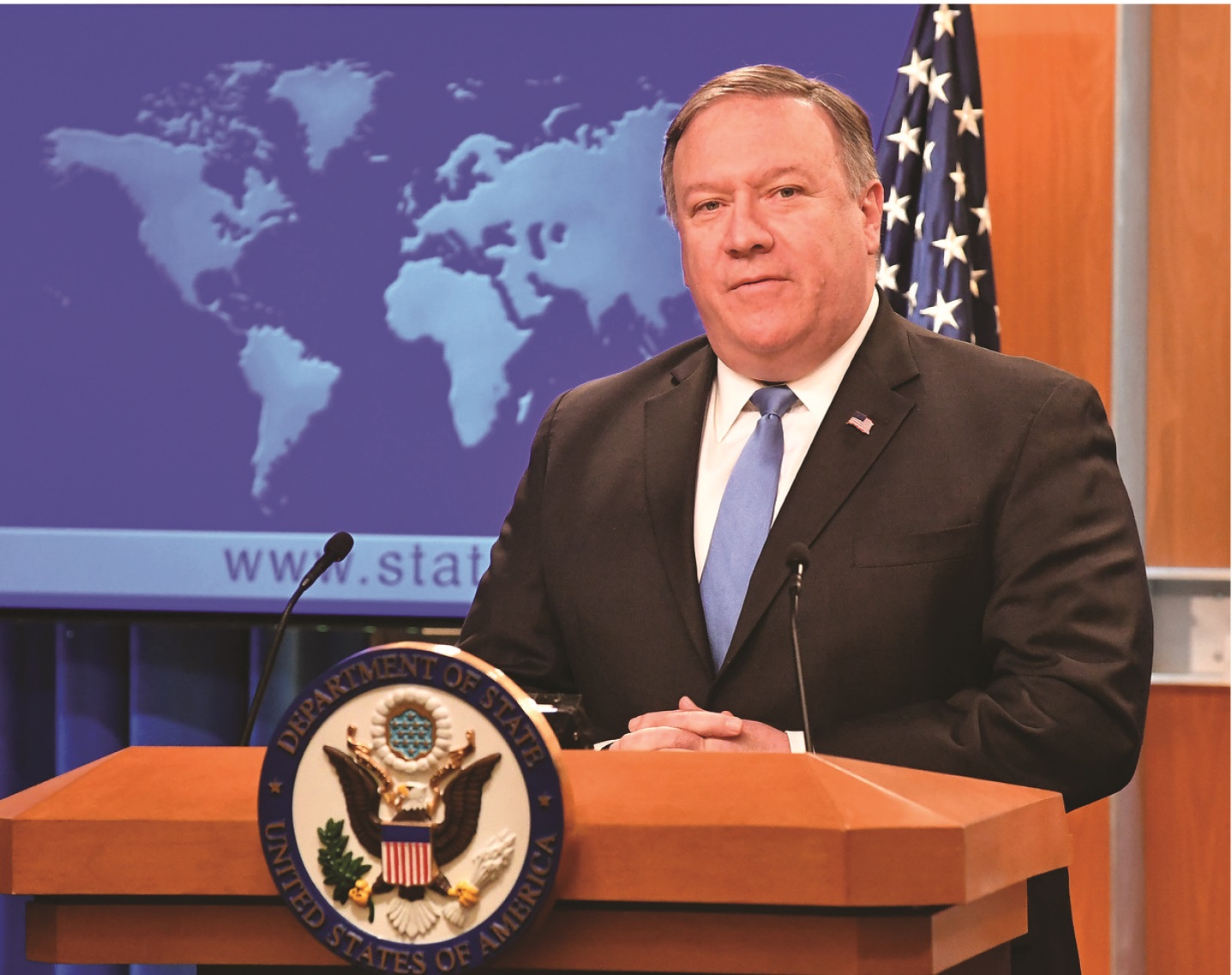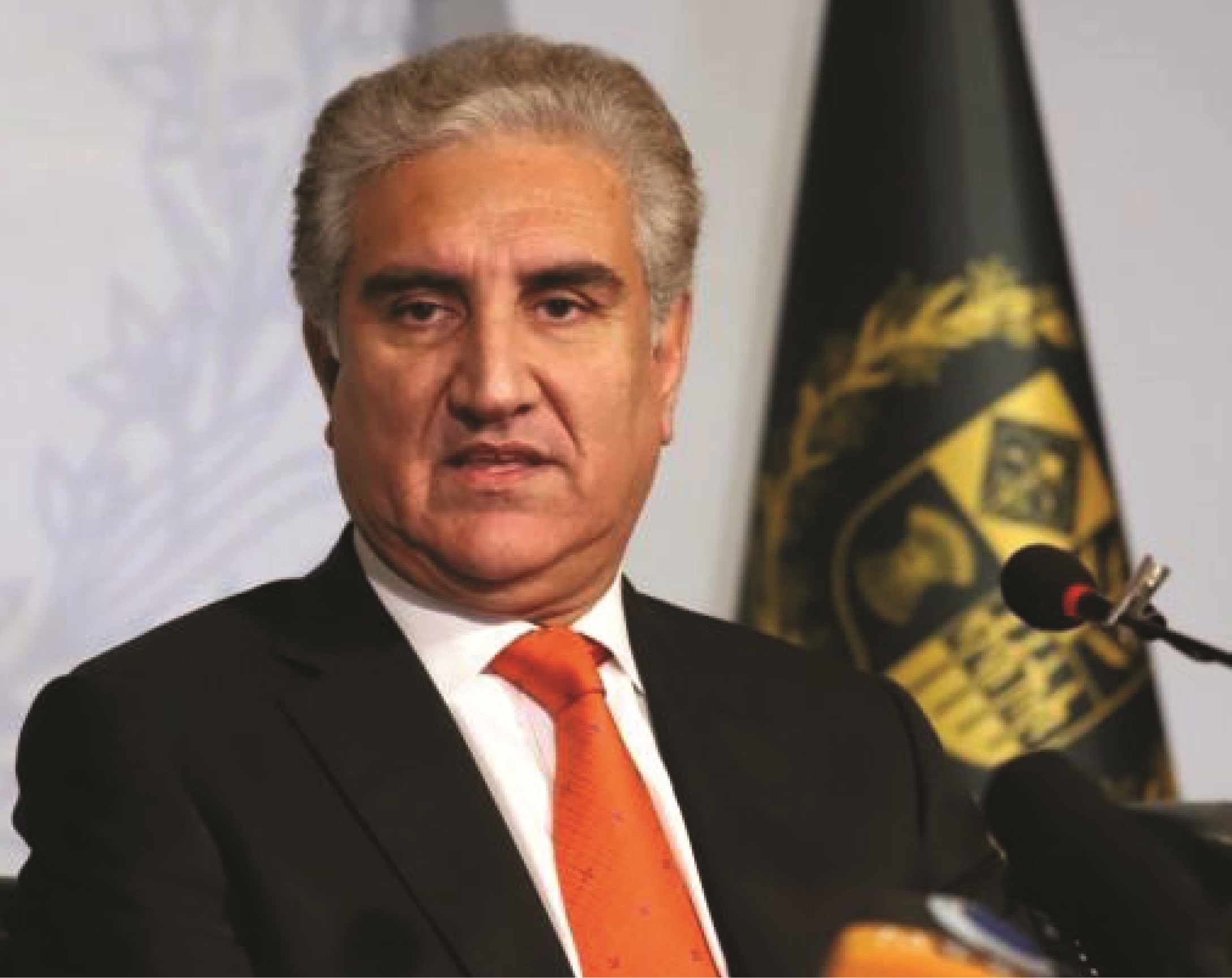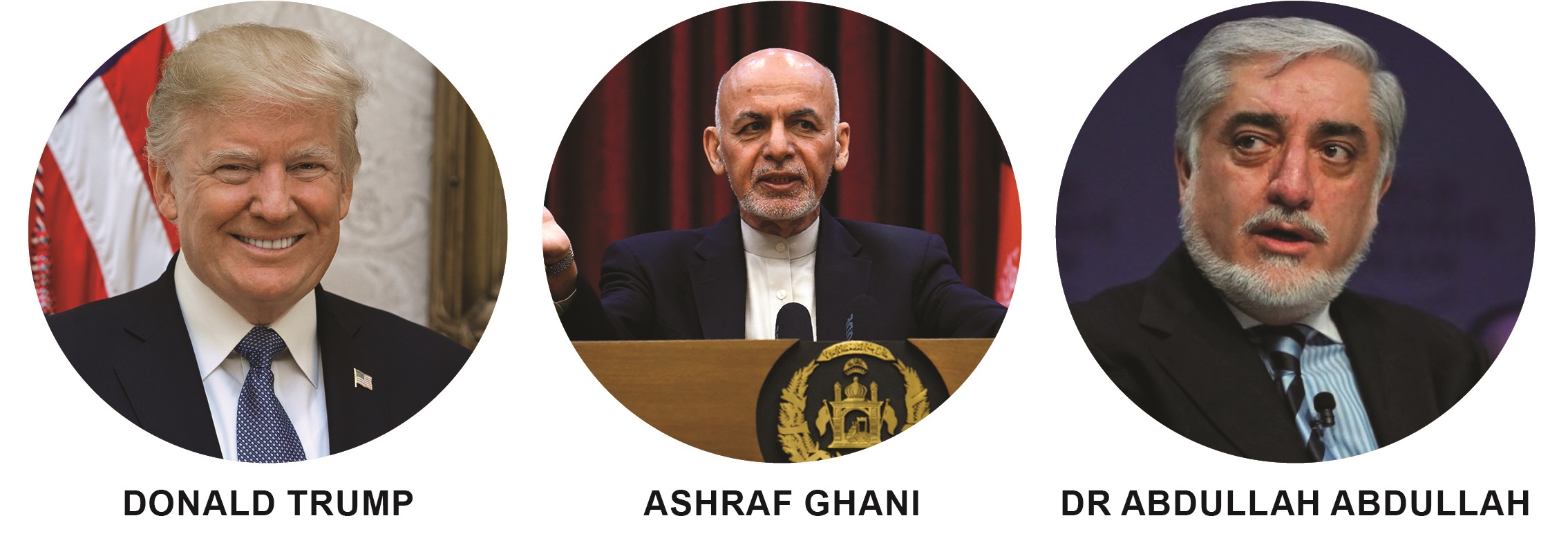President Donald Trump is desperate for inking an early agreement with the Afghan Taliban, on the edge are his Nobel Peace Prize and second Presidential term. Taliban are in no hurry, in their calculus, a decade or two here and there do not matter. The stakes of Afghanistan’s peace talks are extremely high. Failure, said President Ashraf Ghani last, is “not an option.” The Afghan government was in the throes of a political crisis over a disputed presidential election held last September. Ghani initially balked at being told to free 5,000 Taliban prisoners of war, but eventually relented. All except a few have been released.
Talks between the two sides were to begin shortly after a US-Taliban agreement in February, but began on September 12 after months of delays. Afghan defence ministry spokesperson says contrary to expectations Taliban attacks are still going in high numbers; Taliban and Afghan government forces clashed across Afghanistan hours after the start of peace talks in Doha. Two teams led by Taliban’s political chief Mullah Abdul Ghani Beradar and Dr. Abdullah Abdullah had met the Qatari Emir on September 12 a courtesy call.
The commencement of the “intra-Afghan” talks represents a significant step forward in the effort to end decades of war in Afghanistan, but peace is far from guaranteed. Meeting with the Afghan government was a condition of the US-Taliban deal. That deal will end America’s deadly and costly 19-year war in Afghanistan. But it did not resolve the Taliban’s organized military campaign to unseat the Afghan government and rule the country under Islamic law. A power sharing arrangement shall be the lead point during talks.
Negotiators will be tackling tough issues. Hard negotiations will be held behind closed doors. Agenda includes the terms of a permanent cease-fire, the rights of women and minorities, and the disarming of tens of thousands of Taliban fighters and militias with multiple cross purposed loyalties. The two sides are also expected to discuss constitutional changes and power sharing. Even seemingly mundane issues like the flag and the name of the country the Islamic Republic of Afghanistan or as the Taliban’s administration was known when it ruled, the Islamic Emirate of Afghanistan could find their way onto the negotiation table and roil tempers.
Reaching an agreement between the parties continues to be an uphill challenge. “With the start of intra-Afghan talks we were expecting the Taliban to reduce the number of their attacks, but unfortunately their attacks are still going on in high numbers,” Fawad Aman, a spokesperson for the Afghan defence ministry, said. Aman said that, on September 11, the eve of the inauguration of the talks, the Taliban had carried out 18 attacks against government forces and installations across the country, inflicting heavy casualties. “We don’t have exact information about Taliban attacks on the following day, but I can say the number of attacks has increased instead of decreased”.
Taliban do not accept Afghanistan’s internationally recognized government as legitimate political authority. That is why the Afghan government was not a party to the US-Taliban agreement. Some US government officials and former diplomats sharply criticized the concession to exclude Afghanistan’s government from talks with the US and the Taliban about the future of the country. “This deal is a surrender,” wrote the long-time US diplomat and ambassador to Afghanistan under President Obama, Ryan Crocker, in The Washington Post.
Many questions remain whether the Taliban can be held accountable for what they’ve promised. They also fear losing the meaningful achievements that came out of international engagement in Afghanistan, such as women’s empowerment, increased freedom of speech and a more vibrant press. The Taliban have already said ‘yes’ to women and girls attending school, working women concept women in politics and as lawyers and judges. However, they say they draw the line at a woman president or Supreme Court chief justice, etc. Most Afghans are happy with this. Constitutional changes are expected to be high on the agenda and big in many Afghans’ minds will be the Taliban’s interpretation of Islamic rules. Washington’s watchdog, the Special Inspector General for Afghan Reconstruction (SIGAR), has expressed concerns that demobilized Taliban fighters returning to their homes could be targeted by corrupt officials or threatened by authorities.
US Secretary of State Mike Pompeo attended the opening ceremony.

Representatives from a number of countries who spoke at the inauguration of the peace talks called on the Taliban to announce an immediate ceasefire before negotiators sat down to find a way forward. US peace envoy Zalmay Khalilzad, who invested a year and a half negotiating the peace deal, called negotiations between Afghanistan’s warring sides “a historic opportunity for peace one that benefits all Afghans and contributes to regional stability and global security.” Achieving a significant reduction in violence and how to get to a permanent ceasefire would be among the first issues the sides would discuss, the head of Afghanistan’s peace council, Abdullah Abdullah, told Reuters on September 11. The Taliban did not say anything about a possible ceasefire at the ceremony. Taliban spokesperson Zabihullah Mujahid said in a statement that the insurgent group attacked a convoy of Afghan forces that had arrived to launch an operation along a key highway in Kunduz. Even on the first day of talks, conflict in Afghanistan killed and wounded more than 100 people.
Mullah Beradar declared in his opening remarks that the group had met the conditions of the US-Taliban deal. He said the Taliban envisioned an Islamic system that embraces all Afghans. He also urged patience as the negotiations proceeded, urging both sides to stick with the talks even in the face of problems. “The negotiation process may have problems, but the request is that the negotiations move forward with a lot of patience, with a lot of attention, and it should be continued with such kind of attention,” he said. “We want to give them (people of Afghanistan) this assurance that with full honesty we continue the Afghan peace negotiation, and we try for peace and tranquillity, we will pave the ground in Afghanistan.”
Abdullah Abdullah said in his remarks that the sides do not need to agree on every detail, but should announce a humanitarian cease-fire. Both sides will be “peace heroes” if negotiations bring about a lasting peace that protects Afghanistan’s independence and leads to a system based on Islamic principles that preserves the rights of all people, he said. Yet Abdullah noted that since that agreement was reached, 1,200 people have been killed and more than 15,000 wounded in attacks across the country. The United Nations has urged a reduction of violence and criticized civilian casualties on both sides.
US Secretary of State Mike Pompeo attended the opening ceremony. “Each of you carry a great responsibility,” Pompeo told the participants. “You have an opportunity to overcome your divisions.” Pompeo warned that “their decisions and conduct will affect both the size and conduct of US assistance”. He encouraged the negotiators to respect Afghanistan’s rich diversity, including women and ethnic and religious minorities. He said that while the choice of Afghanistan’s political system is theirs to make, the US has found that democracy and rotation of political power works best. “I can only urge these actions. You will write the next chapter of Afghan history, “he said. He said the US will never forget 9/11 and that America welcomes the Taliban commitment not to host terrorist groups, including al-Qaida, which was responsible for the carnage.
Pakistan’s Foreign Minister Shah Mahmood Qureshi addressed the inaugural session:

“Excellencies! We meet today to mark an historic occasion, when our Afghan brethren take a major step forward in their long quest for peace. Indeed, a long phase of tribulations seems ending. A new dawn is upon us. This journey has not been easy. There have been obstacles and setbacks; moments of doubt and despair. Yet, progress has been made, and preserved. Arriving at this inflection point has been an accomplishment, and this success belongs, first and foremost, to the Afghans. Pakistan has walked alongside you in every possible way, by encouraging reduction in violence and by urging dialogue and negotiations. Pakistan has fully facilitated the process that culminated in the US Taliban Peace Agreement in Doha on 29 February 2020 and has reached this juncture. Commencement of Intra-Afghan negotiations, today, is the fruit of our combined efforts.
Excellencies! Pakistan and Prime Minister Imran Khan has long maintained that there is no military solution to the conflict in Afghanistan. Political solution is the only way forward. We are gratified that our perspective is now widely shared across the international community. We are also gratified that we have fulfilled our part of the responsibility. It is now for the Afghan leaders to seize this historic opportunity, work together constructively, and secure an inclusive, broad-based and comprehensive political settlement. The forthcoming negotiations are for the Afghans to decide about their future. The Afghans alone must be the masters of their destiny, without outside influence or interference. Spoilers from within and from without will pose formidable challenges. Constant vigilance will be required to guard against their machinations. We hope all sides will honour their respective commitments, persevere in the face of all challenges and setbacks, and remain unflinchingly committed to achieving a positive outcome.
Excellencies, besides Afghanistan, Pakistan is the country that has suffered the most from the Afghan conflict. Over the past 40 years, we have endured terrorist attacks, loss of precious lives, mass population displacements, instability at the borders, and huge economic costs. But we have persevered in the face of all difficulties and negativity. Our citizens and law enforcement personnel have rendered invaluable sacrifices. Our leadership has decisively demonstrated that Pakistan will only be a partner for peace.
Excellencies, at this historic juncture, it is imperative that the mistakes of the past are not repeated. The Afghan people must not be abandoned, as it happened before. The progress achieved must not be frittered away. A peaceful and stable Afghanistan will bring new opportunities for the progress and prosperity of the Afghan people. It will also open new vistas of cooperation and connectivity in the region and beyond. I suggest a four-pronged way forward. We call upon the international community and all concerned:
- To continue to support the Afghan-led and Afghan-owned peace process while respecting the consensus that emerges from Intra-Afghan Negotiations.
- To ensure that Afghanistan neither witnesses the violent days of the past nor becomes a space for elements who would harm others beyond its borders.
- To deepen and sustain economic engagement with Afghanistan for its reconstruction and economic development.
- To ensure a well-resourced, time-bound return of Afghan refugees to their homeland with dignity and honour.
Excellencies, at this moment of hope, I reassure our Afghan brethren that Pakistan will always be in full support and solidarity with them as they continue their momentous journey on the path of peace, security and development. Pakistan will always support a peaceful, stable, united, democratic, prosperous and sovereign Afghanistan, at peace with itself and with its neighbours”
Complete withdrawal of US troops from Afghanistan does not hinge on the success of the talks. Withdrawal is contingent on the Taliban honouring commitments to fight terrorist groups, in particular the Islamic State affiliate in Afghanistan, and ensure that Afghanistan cannot again be used to attack America or its allies. The US has refused to give specifics of the guarantees citing security reasons, but the withdrawal of US troops has already begun. President Donald Trump has said that by November, about 4,000 soldiers will be in Afghanistan, down from 13,000 when the deal was signed in February .”Washington’s goals are very simple: It wants intra-Afghan talks happening as soon as possible, because these give the White House political cover for an imminent withdrawal,” said Michael Kugelman, Deputy Director of the Washington-based Wilson Centre’s Asia Program. Trump likely wants a peace deal before the election, so that he can garner political benefits galore and pitch himself as a Nobel Peace Prize candidate. But presumably even he realizes it’s wildly unrealistic to expect a deal so soon. These types of negotiations tend to be measured in years, not weeks.”
As negotiations begin, the issues that separate the two sides are many, the mistrust is deep and the way forward is fraught with uncertainty. The peace process could collapse, any time for any reason the party has just begun.




